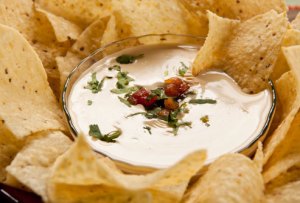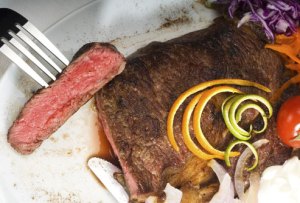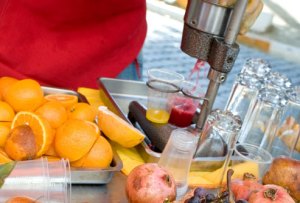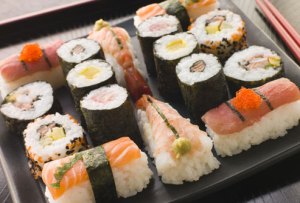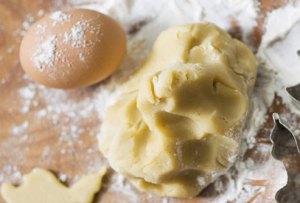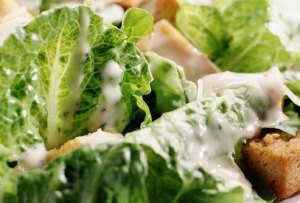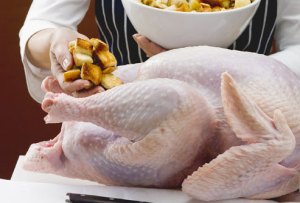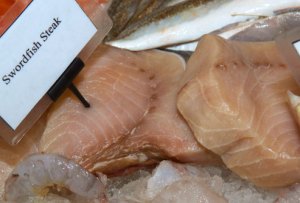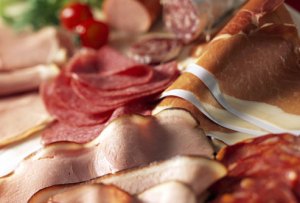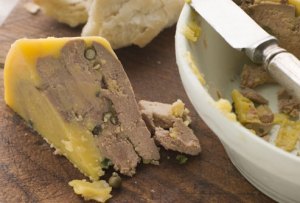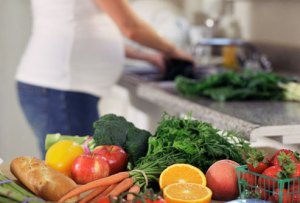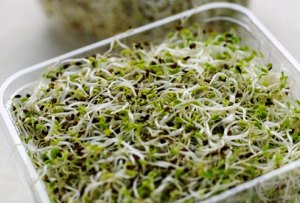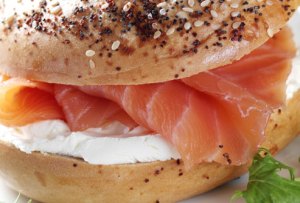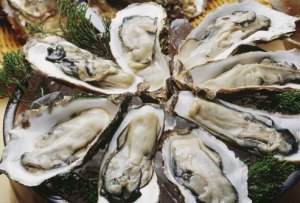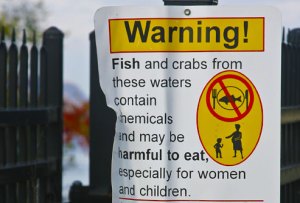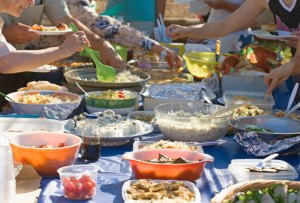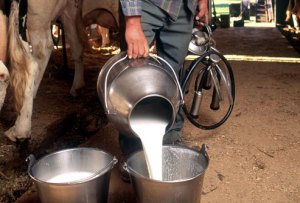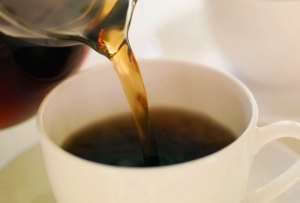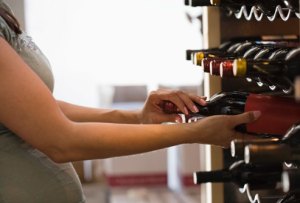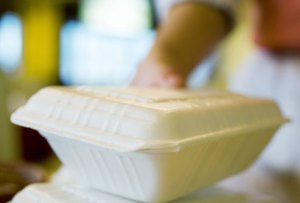Baru je baca article bawah ni and think that very2 important utk ibu mengandung tahu and aware tentang makanan2 yang dilarang makan ketika mengandung.
Since last time ada bad experience in preganancy, now sy sangat2 pantang tentang makanan. Paranoid sangat sampaikan setiap kali nk makan makanan yang pelik kene google dulu tgk info tentang makanan tu and effect kepada pregnant lady.. Teruk nya la sampai macam tu skali. Hihii~
Selain dari makanan2 yang dilarang makan seperti yang info di bawah ni, sy pon pegang jugak petua orang lama2... Maybe tak da kajian perubatan yang mengatakan nenas, air kelapa and tebu tak boleh makan semasa mengandung. Tapi ikot kata2 orang tua, nenas, air kelapa and tebu makanan yang tajam dan mungkin akan memudaratkan kandungan expecially utk kandungan 1st trimaster. Buktinya, sy sendiri pernah makan laksa kuah nanas masa pregnant 6 minggu and know what keesokan harinya sy bleeding and doctor confirm yang sy misscarriage. So mmg sangat bahaya makan makanan yang tajam macam ni.. And if not mistaken lada hitam pon patot dielakkan sebab panas. Mungkin kalau ambil dalam kuantiti yang sikit tape kot.
So mommies, please take care of your food and jangan makan benda2 yang bole memudaratkan kandungan...
What Not to Eat When Pregnant
Reviewed by Louise Chang, MD
So Long, Soft Cheeses
Eating Mexican queso blanco or other soft cheeses during pregnancy can be risky. Those made with unpasteurized milk can harbor Listeria bacteria, which has been linked to miscarriage, premature delivery, and death. It’s best to avoid brie, camembert, feta, blue cheese, queso blanco, queso fresco, and Panela – unless the label says it’s pasteurized. When in doubt or dining out, ask before you eat.
Skip Undercooked Meat
You might like your filet mignon rare, but pregnancy is a time to order all steaks and burgers well done. Raw or undercooked meat can harbor toxoplasma and a variety of bacteria. When dining out, make sure your meat is steaming hot and thoroughly cooked. At home, the temperature should reach at least 145° F for whole cuts, 160° F for ground meats like hamburger, and 165°F for chicken breasts.
Beware Fresh Juice
Fresh-squeezed juice in restaurants, juice bars, or farm stands may not be pasteurized to protect against harmful bacteria, including salmonella and E. coli. Some markets also sell raw, unpasteurized juice in the refrigerated case – look for the required warning label and steer clear. Pregnant women should opt for juice that is pasteurized. Shelf stable juice in boxes and bottles is also safe.
Sayonara, Sushi
Sorry, sushi fans, but it’s time for a 9-month hiatus from this treat. Although seafood is a great source of protein, raw seafood can be a source of harmful parasites and bacteria. The FDA recommends pregnant women only eat fish and other seafood that has been cooked thoroughly.
Raw Cookie Dough
When you’re baking cookies, you may be tempted to pop a bit of raw dough in your mouth. But even a taste can be risky if the dough contains raw eggs. The CDC estimates one in 20,000 eggs is tainted with salmonella bacteria. To be safe, resist tasting unbaked cookie dough, batter, or filling made with raw eggs. The good news is store-bought cookie dough ice cream is safe.
Homemade Caesar Dressing
Raw eggs are also used in many homemade dressings and sauces, such as:
Caesar salad dressing
Béarnaise sauce
Hollandaise sauce
Mayonnaise
Pregnant women should opt for store-bought versions, which are made with pasteurized eggs.
Homemade Tiramisu
Many homemade desserts, including mousse, meringue, and tiramisu, also contain raw eggs. If a store-bought version won’t do, there is a safe way to prepare your favorite . Some supermarkets sell pasteurized eggs, which are OK to eat raw. Make sure the label on the eggs specifically states “pasteurized.”
Fresh Pre-Stuffed Poultry
A pre-stuffed turkey or chicken offers a short-cut to a guest-worthy meal. But the juice from fresh, raw poultry can mix with the stuffing and promote bacterial growth. Cooking protects most people, but pregnancy makes it harder to fight off infections. A safe alternative is buying frozen pre-stuffed poultry. Be sure to cook it directly from frozen – don’t let it defrost first. The thigh meat should hit 180 ºF.
Fish With Mercury
Swordfish, tilefish, king mackerel, and shark contain high levels of methylmercury. This metal can harm an unborn baby’s development. Pregnant women should choose fish that are low in mercury, such as catfish, salmon, and canned light tuna. If you prefer albacore (white) tuna, limit yourself to 6 ounces per week. Check with your doctor before taking fish oil or any other supplements while pregnant.
Deli Meats
Unlike many other foodborne germs, listeria can grow at the temperatures inside your fridge. For this reason, pregnant women should avoid perishable, ready-to-eat meats, such as cold cuts and hot dogs. You can make these foods safe by heating them until they are steaming hot and eating them promptly.
Pâtés or Meat Spreads
Pâtés contain perishable meats, so they may harbor listeria as well. Keeping your fridge at or below 40° F will slow the growth of this bacteria, but won’t stop it completely. Because pregnant women are particularly vulnerable to listeria, it’s best to avoid any type of refrigerated meat spread. Spam lovers can breathe easy. Canned and shelf-safe meat spreads are OK during pregnancy, if not exactly a healthy food.
Unwashed Fruits/Veggies
Pregnancy is no time to skimp on fresh fruits and vegetables. Just be sure to rinse them thoroughly under running water. A parasite called toxoplasma can live on unwashed fruits and veggies. It causes an illness called toxoplasmosis, which can be very dangerous to an unborn baby. Don’t use soap to wash produce. Instead, scrub the surface with a small vegetable brush. Cut away any bruised areas, since these may harbor bacteria.
Raw Sprouts
Pregnant women should not eat raw sprouts of any kind, including alfalfa, clover, and radish. Bacteria can get into the seeds before the sprouts begin to grow, and these germs are nearly impossible to wash away. At the deli, check sandwiches to make sure they don’t contain raw sprouts. At home, cook sprouts thoroughly to destroy any bacteria.
Smoked Seafood
During pregnancy, it’s best to skip the lox when you enjoy your morning bagel. Like ready-to-eat meats, refrigerated smoked seafood is vulnerable to listeria. This includes smoked salmon (often labeled nova or lox), as well as smoked trout, whitefish, cod, tuna, or mackerel. It is safe to use smoked seafood in a cooked meal, such as a casserole.
Raw Shellfish
Raw shellfish is one of the top causes of seafood-borne illness. The culprits include parasites and bacteria that are generally not found in cooked seafood. Shellfish is safe to eat during pregnancy, as long as you cook it thoroughly. Cook oysters, clams, and mussels until the shells open. If any don’t open, throw them away.
Fish from Local Waters
Unless you know your local streams, bays, and lakes are unpolluted, avoid eating fish you catch yourself. Some lakes and rivers are contaminated with industrial chemicals. Locally caught bluefish, striped bass, salmon, pike, trout, and walleye may be affected. Check with your state’s fish and wildlife department for more information.
Potluck Foods
You may not want to insult your friends by avoiding their potluck offerings. But there’s reason for concern if the food is left unrefrigerated for too long. Follow the 2-Hour Rule: Don’t eat potluck dishes that have been sitting at room temperature for longer than two hours. When temperatures are above 90° F, the cut-off should be one hour.
Unpasteurized Milk
Have you ever dreamed of visiting a farm and tasting milk fresh from a cow? If you’re pregnant, it’s best to postpone that outing. Freshly collected milk has not yet been through the pasteurization process that protects it from listeria. Only buy milk, cheese, or dairy products from a local farm, if the label says “pasteurized.”
The Caffeine Question
Good evidence now shows that a moderate amount of caffeine is safe during pregnancy. But the jury is still out on whether higher amounts of caffeine can increase the odds of a miscarriage. The March of Dimes recommends women who are pregnant or trying should limit caffeine to 200 mg per day. That’s one 12-ounce cup of coffee. But remember, caffeine is also found in soda, tea, chocolate, and many energy drinks.
Alcohol
You already know that heavy drinking during pregnancy can lead to serious birth defects. What you may not know is that even small amounts of alcohol could be harmful. No amount of drinking has been found to be safe during pregnancy, so it’s best to avoid all forms of alcohol. This includes wine, beer, coolers, and traditional egg nog, which contains alcohol and raw eggs.
Doggie Bags
Unless you’re headed straight home from the restaurant, it’s best to skip the doggie bag. The inside of a car can get warm quickly, allowing bacteria to multiply. If you do take home leftovers, put them in the fridge within two hours of when the meal was originally served.





